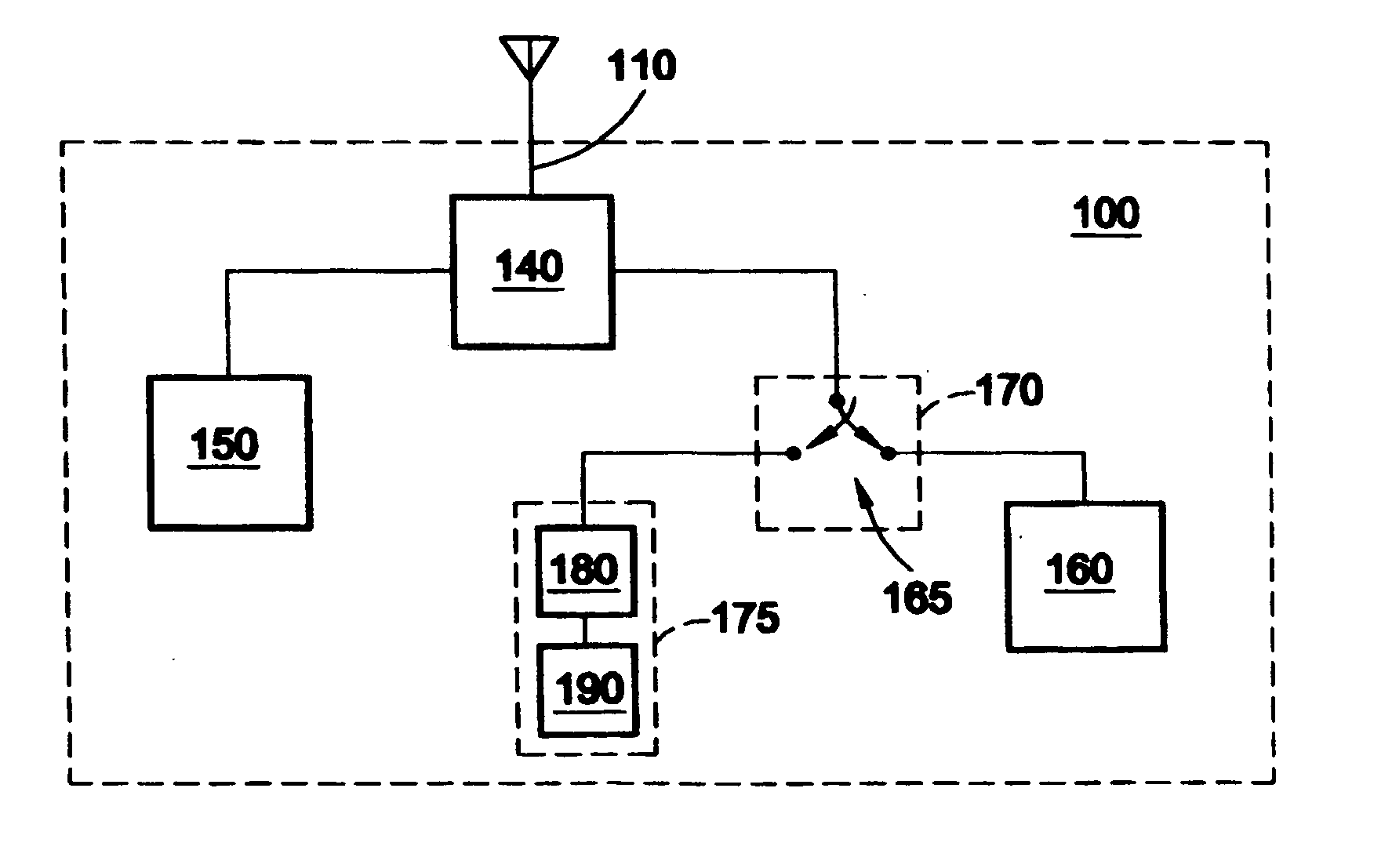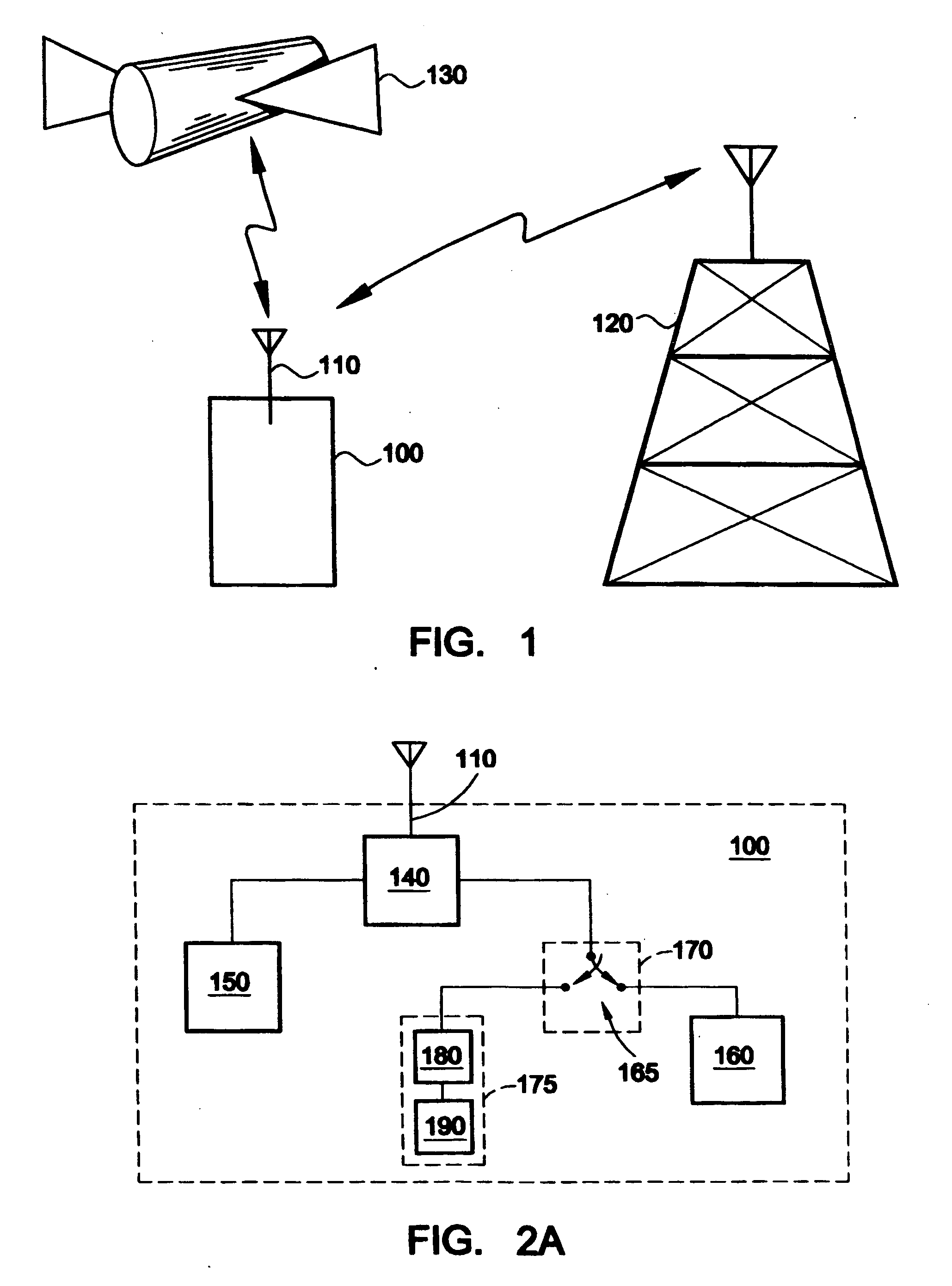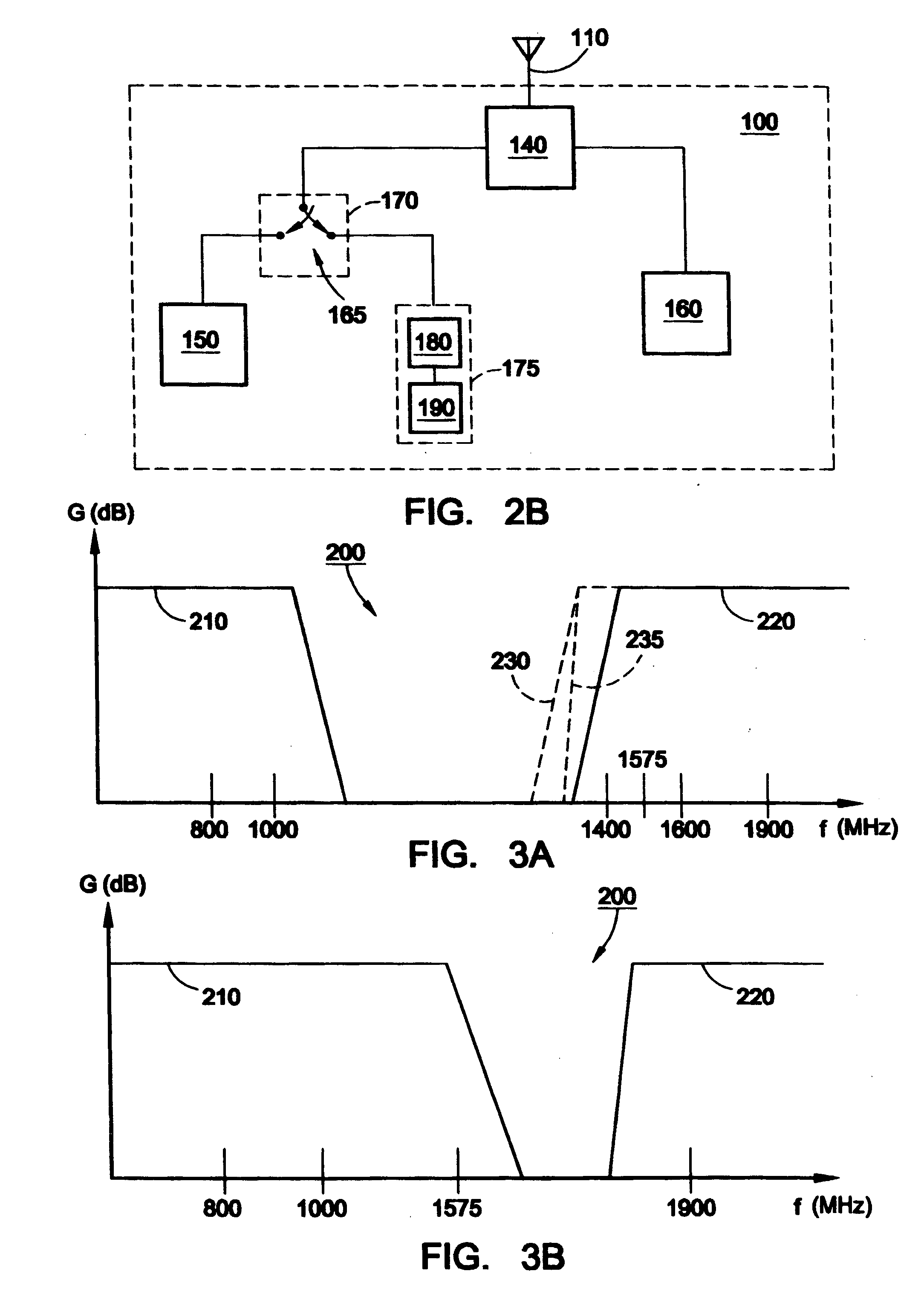System and method for a GPS enabled antenna
a technology of gps and enabled antennas, applied in the field of system and method of gps enabled antennas, can solve the problems of difficult integration of gps technology with other mobile wireless communication devices such as cellular or personal communications services (pcs) phones, and inconvenient carrying of conventional gps devices with a multitude of mobile wireless communication devices such as laptops, mobile phones, pdas,
- Summary
- Abstract
- Description
- Claims
- Application Information
AI Technical Summary
Benefits of technology
Problems solved by technology
Method used
Image
Examples
Embodiment Construction
[0026]FIG. 1 illustrates an exemplary embodiment of a wireless communications system including a wireless communications device 100 according to the present invention. The wireless communications device 100 may include, for example, a handheld wireless communications device, a mobile phone, a car phone, a cellular or a personal communications services (PCS) phone, a cordless phone, a laptop computer or other computing device with a wireless modem, a pager, or a personal digital assistant (PDA). The wireless device 100 may be digital or analog or some combination thereof. Indeed, the present invention contemplates other forms of wireless communications devices known to one of ordinary skill in the art.
[0027] The wireless communications device 100 includes an antenna 110. The antenna 110 is structured to transmit and receive wireless communications signals. In FIG. 1, the antenna 110 is in two-way communications with a base station 120. The base station 120 may be, for example, one o...
PUM
 Login to View More
Login to View More Abstract
Description
Claims
Application Information
 Login to View More
Login to View More - R&D
- Intellectual Property
- Life Sciences
- Materials
- Tech Scout
- Unparalleled Data Quality
- Higher Quality Content
- 60% Fewer Hallucinations
Browse by: Latest US Patents, China's latest patents, Technical Efficacy Thesaurus, Application Domain, Technology Topic, Popular Technical Reports.
© 2025 PatSnap. All rights reserved.Legal|Privacy policy|Modern Slavery Act Transparency Statement|Sitemap|About US| Contact US: help@patsnap.com



